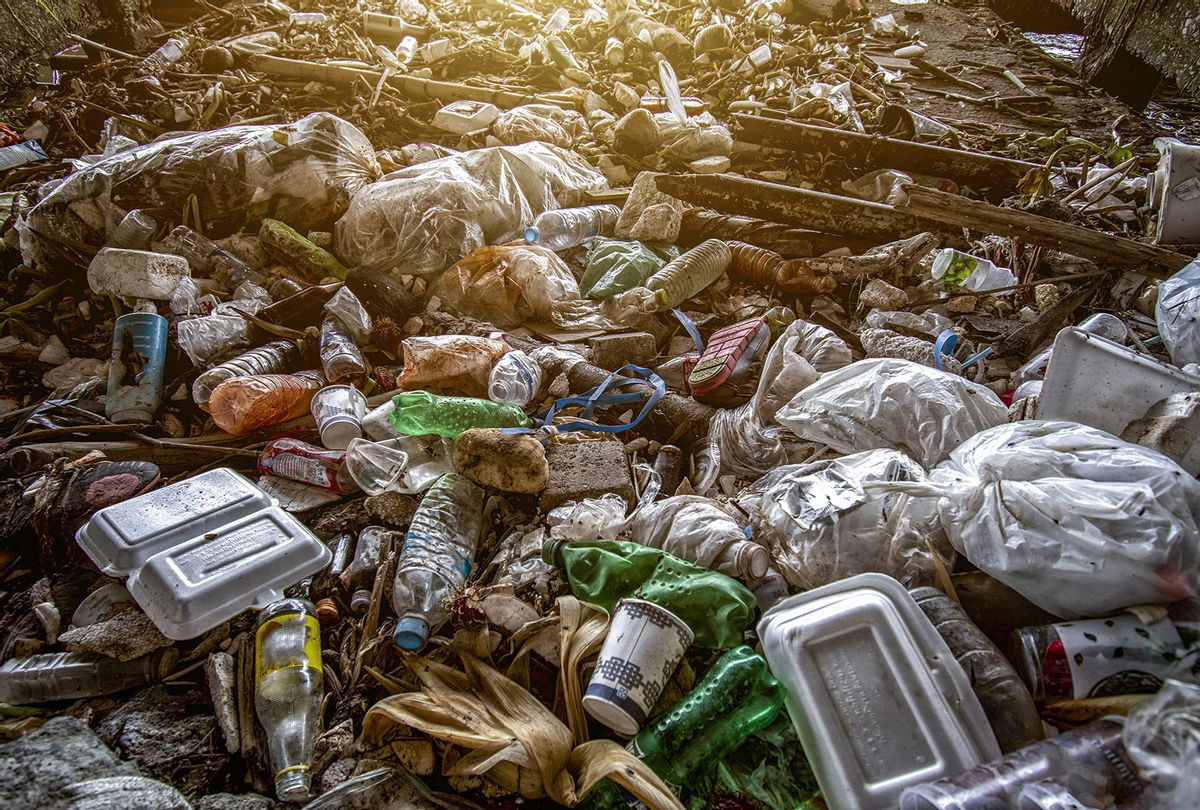A new report by the Minderoo Foundation, a philanthropic group in Australia, found that 100 companies create more than 90% of the world's single-use plastic waste. Indeed, just 20 of those 100 companies are responsible for more than half of the planet's single-use plastic waste.
The shocking report confirms the view of environmental activists who have for years combatted individualistic environmentalist narratives that posit that consumers' individual actions can stop pollution more so than systemic private sector regulation.
Roughly 98% of this single-use plastic waste is made from fossil fuel-based feedstocks rather than recycled products, meaning they exacerbate global warming. The worst offenders include Exxon Mobil (which told NPR that it is trying to environmentally responsible), Dow Chemical Co. and the Chinese company Sinopec. Those three companies alone create more than one-seventh of all waste from single-use plastics, including food packaging, bags and bottles.
The Minderoo Foundation, which worked with other groups like the London School of Economics and Stockholm Environment Institute, says that pollution has been getting worse. The world's largest manufacturers of single-use plastic are planning on ramping up production because they see high demand throughout the world (the COVID-19 outbreak has certainly increased that demand, although it existed before the pandemic). As a result, the Minderoo Foundation projects that an additional one trillion plastic bags will be created, used and thrown away just by 2025. By 2050, single-use plastic manufacturing will drive between 5% and 10% of climate change.
Former Vice President Al Gore, who penned the foreword to the study, wrote that plastic pollution poses an "existential" threat to humanity for reasons beyond global warming. Because of its prevalence in our environment — from countless everyday products that we use to so-called "microplastics" that have seeped into our food, water and air — chemicals in certain types of plastics have been linked to everything from dangerously dropping fertility rates to cancer. Plastic pollution also clogs up our oceans, waterways and wilderness, destroying ecosystems that we need economically and for our very survival.
"Only a fraction of the tens of thousands of tons of plastic waste that end up in blue bins across the country actually get recycled, while the majority of it is buried, burned, or borne out to sea," Sen. Jeff Merkley, a Democrat from Oregon who has sponsored legislation to address this crisis, told Salon in April. "If we keep proceeding with business as usual, the air we breathe, the soil we use to grow our food, and the waters that countless communities rely on will only become more and more polluted — putting Americans' health, particularly in communities of color and low-income communities, at serious risk."
The Minderoo Foundation study builds on previous research that finds that a small number of corporations are responsible for the vast majority of pollution. A 2017 study that found that 71% of global emissions were caused by just 100 companies.
Want more science stories in your inbox? Subscribe to Salon's weekly newsletter The Vulgar Scientist.



Shares